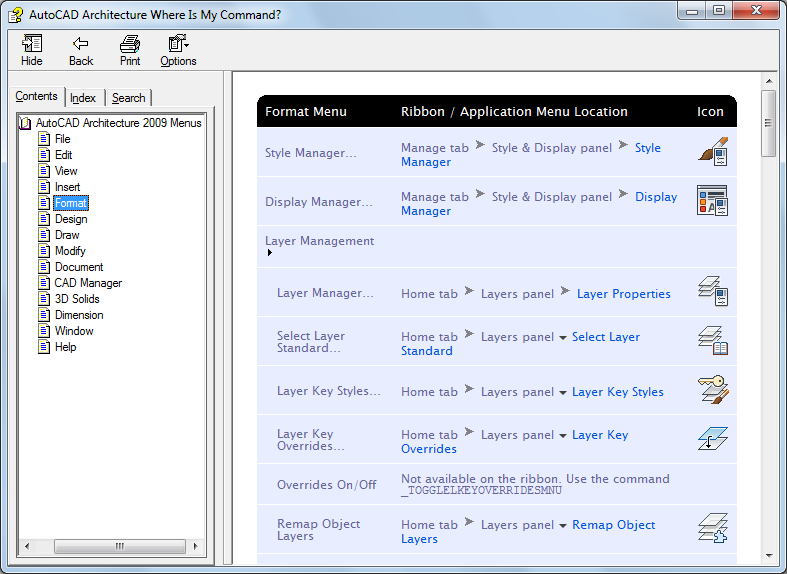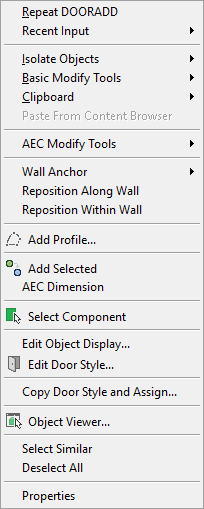The ribbon is intuitive and task-related, and the transition from menus and toolbars to the new user interface will in most cases be quick and easy. However, it is a new design, and the following tips might help you make a more seamless transition.
Where is My Command? Tool
The Where is My Command? tool is a help file that lists commands by their previous menu location and displays their current location on the ribbon.

You can access the Where is My Command? tool from the Help menu  Where is My Command, or from the landing page of the online Help.
Where is My Command, or from the landing page of the online Help.
Searching the Home Tab
The Home tab contains the most frequently used commands within the software. Basic object and drawing tools can be found here, as well as frequently used utilities like modification tools, layers and basic annotation. Use the Home tab as your starting point in a new drawing.

Finding Commands with the Application Menu
The application menu has a Search mode, where you can enter a command name or part of it, and see a list of locations in the user interface where the command can be accessed.
Searching by Context
Commands that refer to a selected object can be found on the contextual tab of that object.

Door contextual tab
The command layout of the contextual tab of an object is in most cases based on the structure of commands on the context menu of the object.

Door context menu
For example, on the context menu of a door you can find the Add Selected command. On the contextual Door tab, you can find the Add Selected command on the General panel.
Finding More Information about the Ribbon
Use the following resources to find out more about the ribbon.
Click Help menu  Learning Resources, and choose from these items:
Learning Resources, and choose from these items:
- User Interface Overview (interactive)
- Tutorials
To access the Where is My Command? tool, click Help menu  Where is My Command?
Where is My Command?